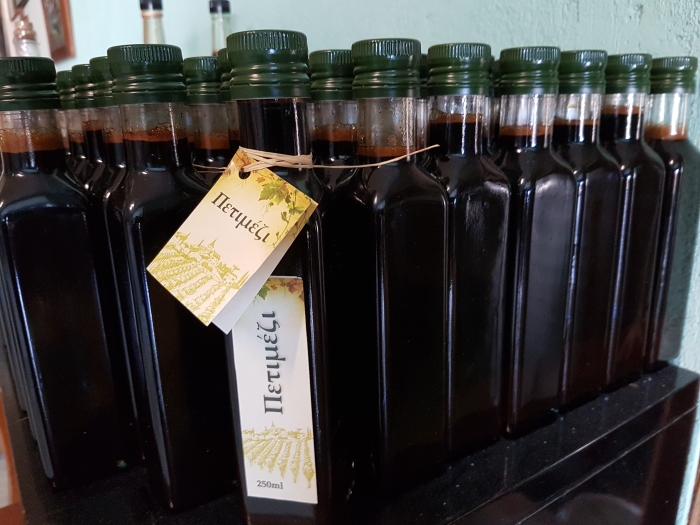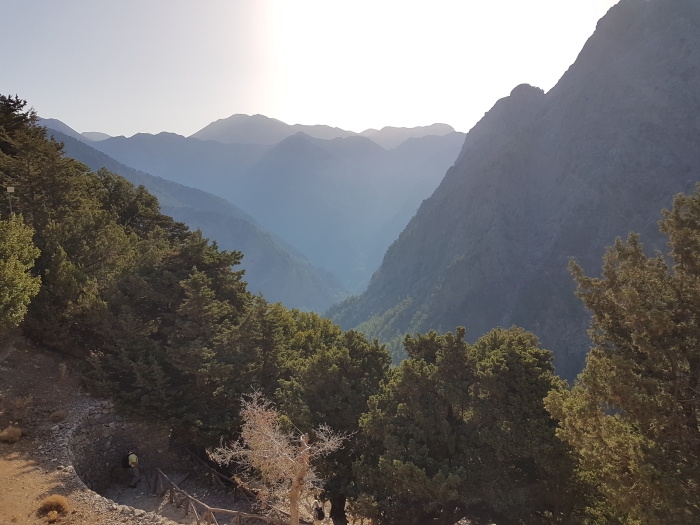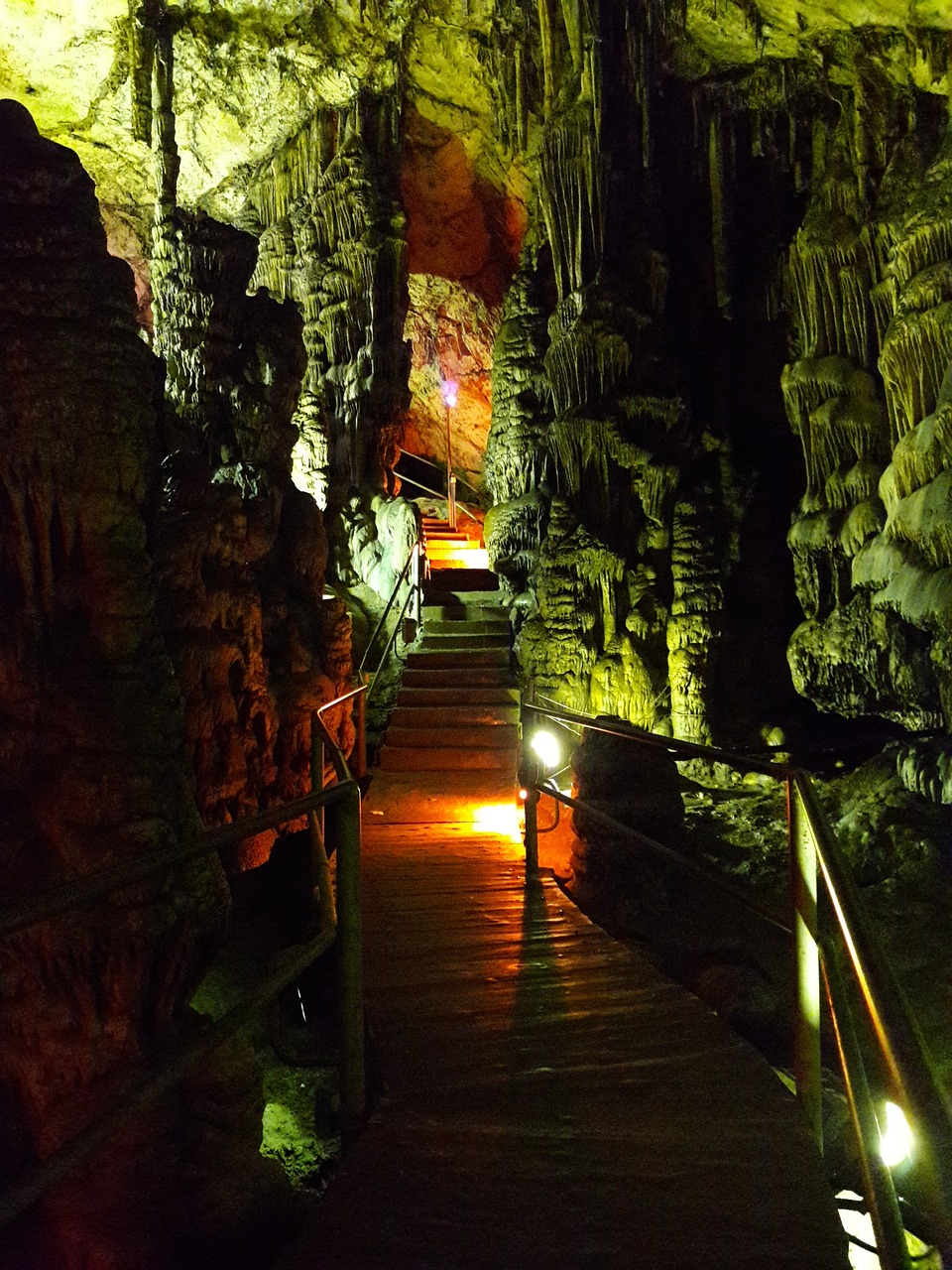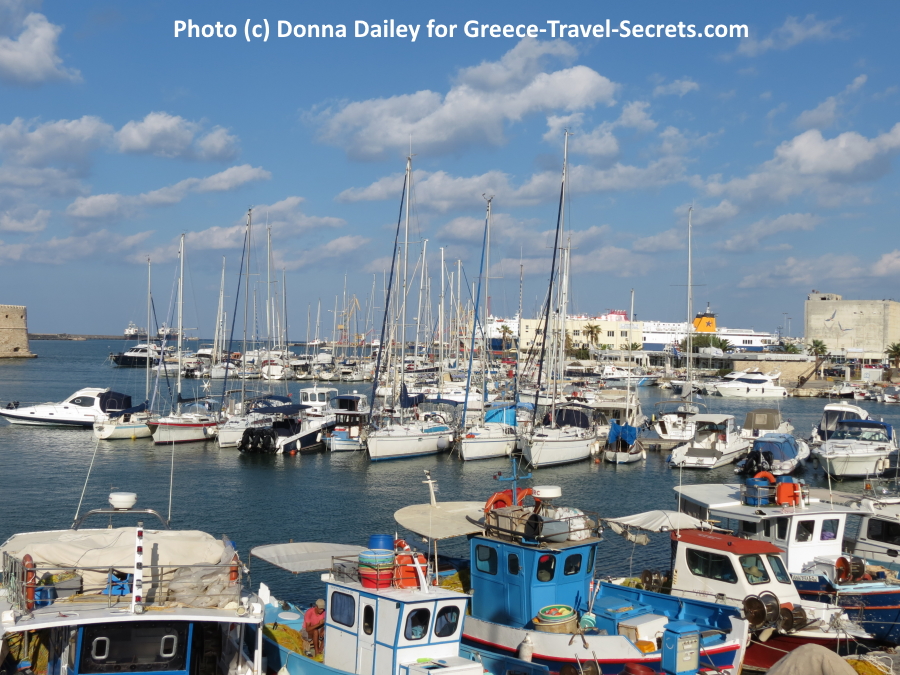Around Central Crete
This tour around central Crete lists some of the area’s highlights such as the traditional village of Arolithos, Minoan remains at Tilisos, and Agioi Deka.
Arolíthos
The ‘traditional village’ of Arolithos, about 12 km (7.5 miles) west of Irakleio, was actually purpose-built for tourists and centered on a hotel, but it’s charming all the same. Its name means ‘a natural hole in a rock which collects rainwater’, and so too does this village aim to gather up the folkloric traditions of Crete.
You can watch weavers, potters, icon painters and other artisans producing traditional crafts, enjoy Cretan food and music, or learn how raki is made in the agricultural history museum.
Tílisos
The remains of this ancient Minoan town sit right within the village of the same name, a delightful example of the continuity of life through the ages. This small peaceful spot beneath shady pines is little visited and makes a refreshing change from the larger archaeological sites. It centres on three Minoan villas, which are thought to have been part of a larger community.
About 16 km (10 miles) west of Irakleio, Tílisos was one of the first Minoan sites to be excavated, prompted by the discovery of three giant bronze cauldrons; these and other finds are now in the Iráklio Archaeological Museum. The ruins are well preserved, and you can wander among the stone walls and through doorways into small rooms and courtyards. Tílisos is surrounded by olive groves and vineyards, where sweet, dark Malmsey wine has been produced since Venetian times.
Agioi Deka
The name of this village, just to the east of the ancient site of Gortina (Gortys), translates as the ‘Holy Ten’ and refers to ten early Christian martyrs who were beheaded here in AD 250 by order of the Roman emperor Decius. They are still highly revered today.
Two churches in the village are dedicated to them. The Old Church, 14th-century but Byzantine in origin, is a lovely stone building with a tiled roof; it is signposted off the main road, a five-minute walk. Inside are frescoed arches and beautiful wood carvings, including one of Christ with the martyrs’ heads. Two painted icons depict their decapitation, and there is a stone block said to have been used for the execution.
The New Church, at the west end of the village towards Gortys, is a simple chapel. Below is a crypt, visible from the outside, where you can peer through an iron gate to see six of the martyr’s tombs.
Fodele
This pleasant village is a 30-minute drive west from Irakleio along the coast. It’s surrounded by orange groves and claims to be the birthplace of the artist El Greco. It’s a peaceful place with a shady town square, where a memorial plaque to the painter is on display. Across a small bridge spanning the river is the church, which has many copies of El Greco’s works.
To see his alleged birthplace, walk along the path (signposted) out of town beside the orchards for about 15 minutes. The house is greatly restored and contains a few displays on the painter’s life.
Opposite the house is the delightful church of the Panayía. Built in the early 14th century, it incorporates the nave of an earlier 8th-century basilica. The baptismal font beside the church (set in the floor for total immersion) also dates from this period. The partially restored frescoes depict angels, saints and scenes from Christ’s life.
Anoyia
The mountain village of Anoyia is about an hour’s drive west of Irakleio. It has suffered greatly at the hands of foreign invaders. It was twice destroyed by the Turks after rebellions in 1821 and 1866. Then, in 1944, German troops shot every male in the village and burnt the houses to the ground in retaliation for the abduction of the German General Kreipe. A statue commemorating the freedom fighters stands in the square in the upper part of town.
Anoyia is known for its woven goods and embroidery. The streets of the lower town are draped with brightly coloured textiles, and you can often watch the local women at work inside their shops.
Behind the café tables in Platía Livádhi, notice the odd wooden sculpture of Elefthérios Venizélos (1864-1936 and eight times the Prime Minister of Greece) with his arm in a sling. It is the work of the late local artist Alkibíades Skoúlas, whose son has opened a museum to display his father’s works. Anoyia is also renowned as a centre of lyra music, and many top musicians have come from here.
Latest Posts
-
The Lesser-Known Traditions of Greek Easter
Step off the beaten path this spring and discover the enchanting — and often surprising — Easter traditions found across Greece. -
Easter in the Mystical Castle of Monemvasia
In the castle town of Monemvasia, with its dramatic medieval backdrop and sea views, Easter is a deeply spiritual and atmospheric experience. -
Sifnos: Greece’s Hidden Culinary Star on the Rise
Sifnos, a Cycladic island, is gaining fame for its rich culinary heritage, especially the beloved melopita honey-cheese tart. -
Easter in Leonidio: A Tapestry of Light, Culture and Cliffs
In Leonidio, Easter comes alive with handmade hot air balloons in the sky and lanterns made from bitter oranges in the streets. -
April 9 Strike in Greece to Impact Public Transport, Ferries and Air Travel
Transportation and travel across Greece will face disruptions on Wednesday, April 9, as public transport, ferry and aviation workers join a nationwide strike called by Greek labor unions. -
Ancient Theater of Lefkada Brought Fully to Light Following Systematic Excavation
The Greek Culture Ministry has announced that the first ancient theater ever identified in the Ionian Islands has recently been brought fully to light on Lefkada, revealing an impressive monument that… -
Seven Greek Traditions Recognized as Intangible Cultural Heritage
From traditional barrel-making to age-old folk dances, seven new entries on Greece’s National Inventory preserve the country’s living heritage for future generations. -
Greek Air Traffic Controllers to Hold 24-hour Strike, Disrupting Flights on April 9
The Hellenic Air Traffic Controllers Union have announced a 24-hour strike for Wednesday, April 9, in response to the protest called by the Civil Servants’ Confederation (ADEDY). The strike is being h… -
Ten Best Budget Hotels on Santorini
Greece Travel Secrets picks the ten best budget hotels on Santorini, some with caldera views, some near beaches and some close to the heart of Fira. -
No Ferries in Greece on April 9 as Seamen Join Nationwide Strike
The Pan-Hellenic Seamen’s Federation (PNO) has announced its participation in the 24-hour strike called by the General Confederation of Greek Labor (GSEE) on Wednesday, April 9. The strike, which will…





























